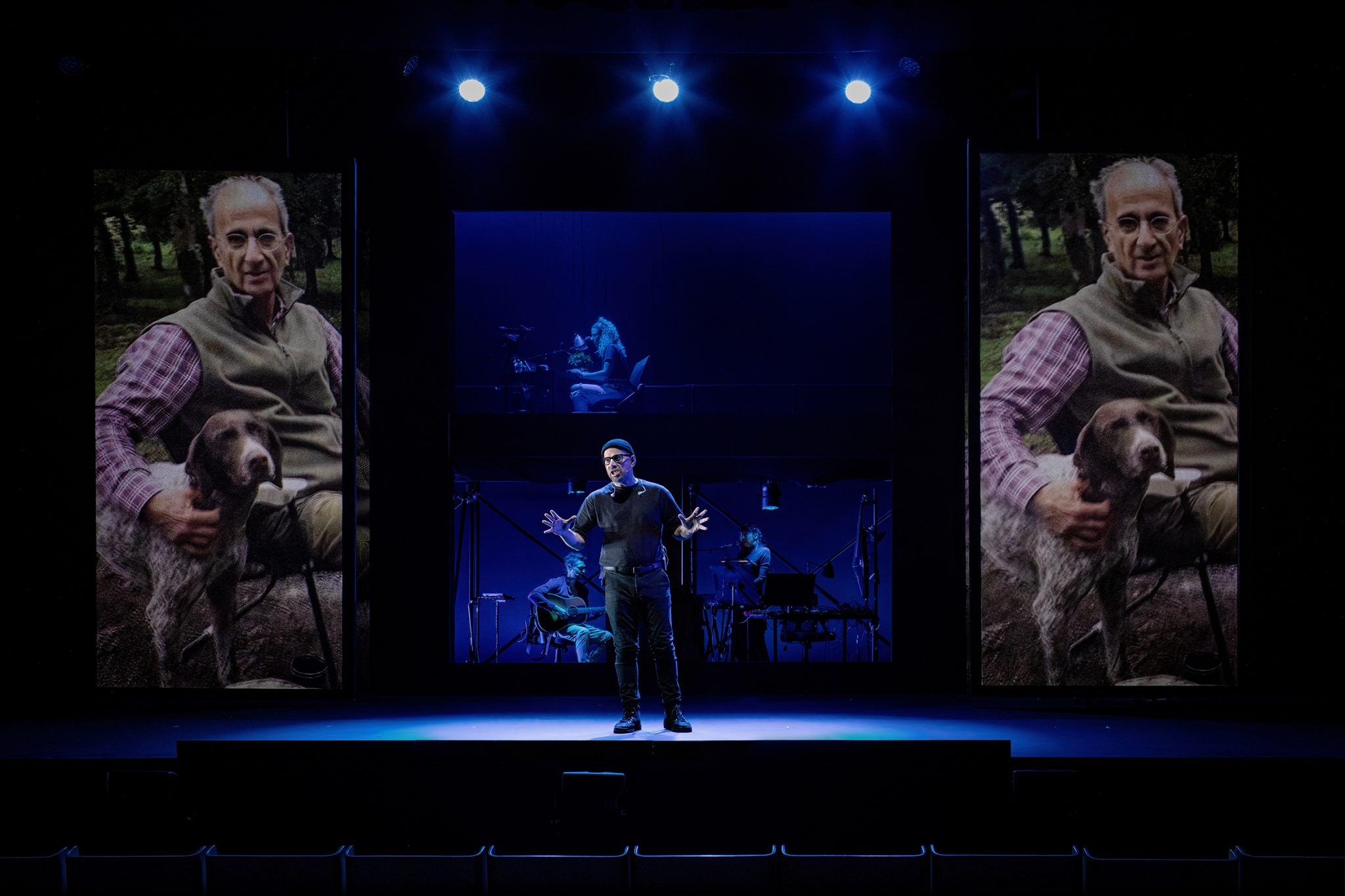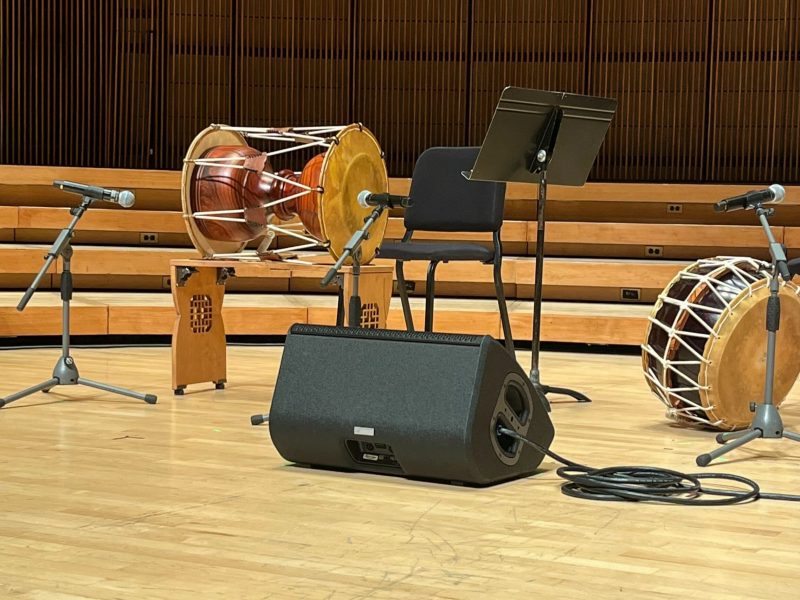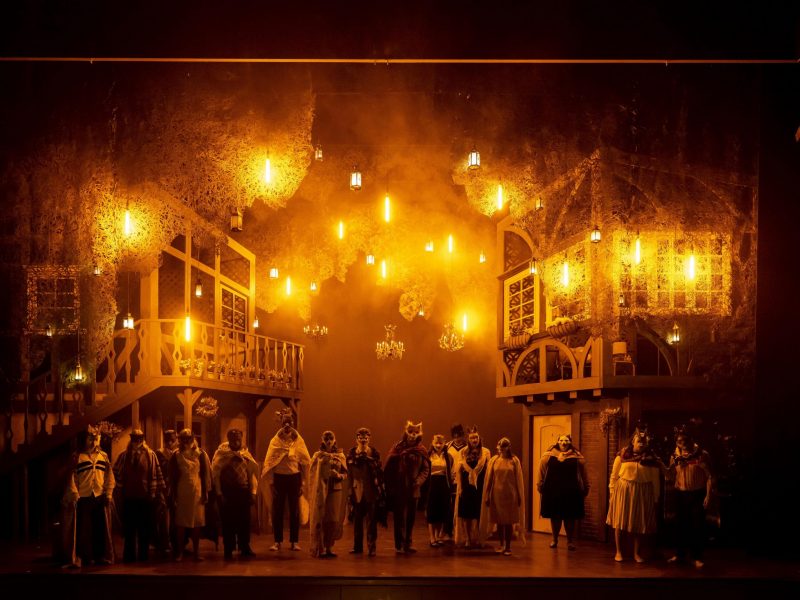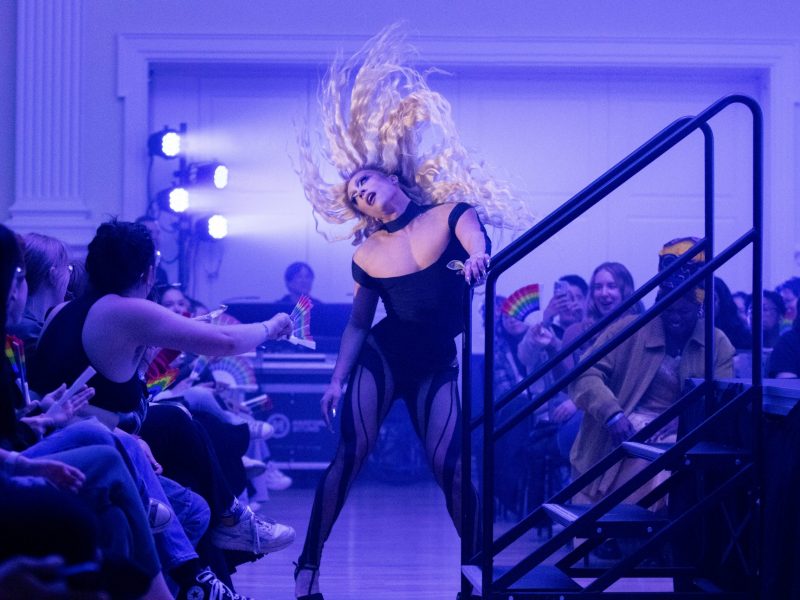Javaad Alipoor, founder of the theater group The Javaad Alipoor company, began his production Things Hidden Since the Foundation of the World by requesting something taboo — that the audience turn on their phones.
He followed up later by encouraging the audience to go down a “Wikipedia rabbit hole,” by clicking endless hyperlinks to new articles.
Things Hidden Since the Foundation of the World premiered Thursday at The Clarice Smith Performing Arts Center. The show characterizes the internet through onstage projections in a performance that blends lecture, comedy and theater.
Real-time Google searches punctuate discussion of the conspiracy surrounding the unsolved murder of Iranian pop singer Fereydoun Farrokhzad.
Alipoor weaves this commentary throughout the performance in a humorous critique of modern media consumption — his interspersed monologues are accompanied by a graphic of a web, gradually expanding the deeper he ventures down the murder’s rabbit hole.
[Electropop artist Tiffany Day headlines Chinese Student Association, SEE Chinatown Café]
Alipoor sees much of our contemporary world as a “great recycling machine” of repeated content and ideas. He said he believes genre-bending allows for a more progressive view of an ever-changing modern world.
“If you use traditional forms [for contemporary theater], you’re kidding yourself that you’re making work about that new thing,” Alipoor said.
Portraying himself in the show, Alipoor seeks to “fill in the gaps” of Farrokhzad’s 1992 murder. Described by Alipoor as Iran’s Tom Jones, many suspect Farrokhzad’s outspoken criticism of the country’s authoritarian regime is what led to his murder.
Alipoor’s research in the show lead him to a true crime podcast, narrated onstage by actress Asha Reid.
As the show progressed, visual information became more cluttered. Google search tabs multiply at an alarming rate. Reid’s podcast devolves into an incoherent mess of incidental metaphors and Alipoor’s web of information entangles the stage.
Leo Grierson, a third-year graduate design major, complimented the show’s “incredible” visual design.
“A lot of my research is in meta mediums— so mediums that use themselves to talk about themselves,” Grierson said. “It was really cool to see that in action integrated here, especially with the Wikipedia stuff.”
[UMD literature club highlights Asian American and Pacific Islander stories]
Alipoor wanted to use the performance to shed light on global threats to democracy.
“Those of us who think that democracy and freedom of speech are an important thing need to think very seriously about how we defend those in this moment of history,” Alipoor said.
Musician Raam “King Raam” Emami appeared alongside Alipoor and Reid — first in video and then in person — regaling the audience of his encounters with the Iranian government.
Emami became an unintentional activist overnight when his song, “The Hunter (Shekarchi),” appeared alongside protest footage of the country’s regime. After the death of his father, another dissident of Iran, Emami created a podcast to voice other Iranian stories.
Diba Roozbeh, a Gaithersburg resident, resonated with the show’s anecdotes of political violence, especially in the face of human rights activism.
“We have so much more to do to get a global peace with each other,” Roozbeh said.
Past Things Hidden Since the Foundation of the World’s dizzying spectacle, Alipoor hopes revelations like this will linger in the audience’s mind when they leave the theater.
“The crazy dream is, of course, that two to three weeks later, something from that piece of work pops up in their mind,” Alipoor said, “and perhaps that becomes part of the way that they’re thinking of the world.”



